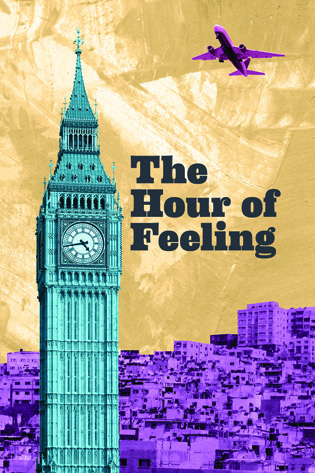This March, I spent the last few days of my spring break in Louisville, Kentucky. As I may have mentioned in class, I am on the board of LMDA and for the past several years we have held our spring board meeting in Louisville during Humanafest at the Actors Theatre of Louisville. It is a wonderfully dizzying two and a half days of play-going, panel discussions, and conversations about theatre in lobbies and in restaurants. This year the festival featured works that varied in theme and genre quite a bit. My personal favorite struck an emotional chord with me that now rarely happens with a show I have not worked on, or am not personally and professionally invested in. Mona Mansour’s The Hour of Feeling is a haunting look at the meaning of home, set in 1967 in Palestine and London. I do not mean this essay to be a review of the play. You can find out more about the piece by watching this clip and reading this review (which opens with the line: “If you want to understand the Sixties, go back to the early 1800s, when Romantic poets like William Wordsworth rejected classical rationalism to celebrate the beauty of deep emotion and the sanctity of individual experience.”), and doing the usual googling routine. I am writing about the play on this blog because of the connection it has to our class materials, particularly our discussions on prosthetics of imagination and memory and gender.
The protagonist of the play is Adham, a young scholar from Palestine who has been invited to London to give a scholarly lecture on Wordsworth’s “Lines Composed a Few Miles above Tintern Abbey, On Revisiting the Banks o the Wye during a Tour. July 13, 1798.” He brings his new wife with him and, while they are in London, war breaks out in the Middle East (one they could not have known would be so short and yet so long). On the evening after his triumphant lecture, while at a party, they receive news of the war. Adham’s wife, Abir, is frantic to return home immediately. Adham is less certain that he wants to return to Palestine (known then as Jordon, “sort of”) and to his mother, who appears to him during his more introspective and anxious moments in the play.
The title of the show is from another poem from Lyrical Ballads, “Lines written at a small distance from my House, and sent by my little Boy to the Person to whom they are addressed,”[1] and selected lines from it are projected on a scrim or quoted during the course of the play (the sections in bold are the ones projected or quoted during this production): (more…)


